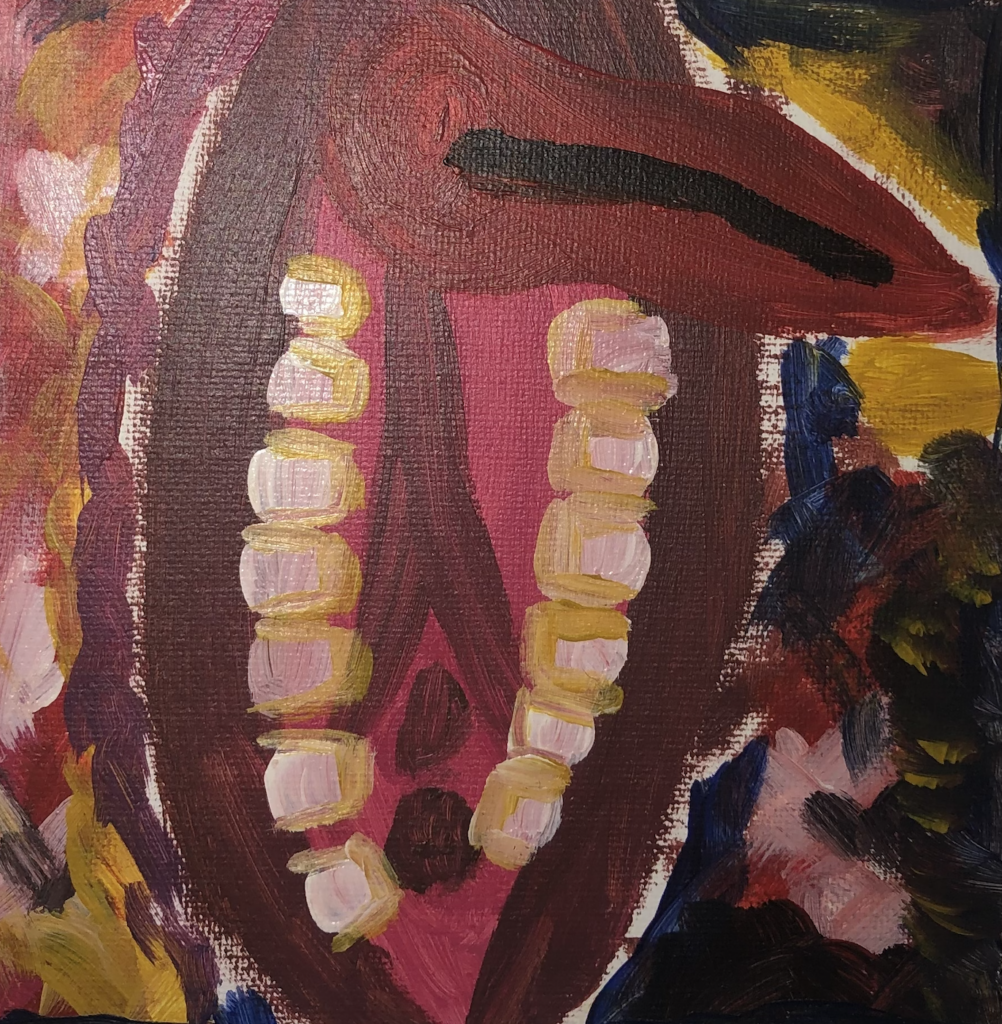When it’s “Errbody Business”: Bbymutha’s Sex-Positivity

Posted by Quasheba A
May 1, 2023
Disclaimer: References to sexually explicit content and imagery.
One of my favorite rappers is Chattanooga native Bbymutha. Bbymutha transforms the dimensions of Black queerness, motherhood, and womanhood in her music through her skillful lyricism that seeks to reclaim sexuality, pleasure, and agency. I was particularly drawn to Bbymutha for being unapologetically Black and Queer and for the empowering messages behind her songs, most notably, “Rules.” In this well-rounded song, Bbymutha details the lessons she’s learned and offers advice on dealing with the sexual politics of dating men. Sexual politics refers to the underlying rules for how one should engage sexually and romantically with others that may be influenced by patriarchy.
Bbymutha provides a set of guidelines for being involved romantically and sexually with men in a way that is intentional and pleasurable. She repeatedly warns that some men may not have women’s interest in mind when they date or hookup and may actually cause harm. We will focus on the central rule and main hook of the song:
“You can’t give yo p*ssy to a n*gga who not used to getting p*ssy/ Cause that p*ssy gon be errbody business”
This opening line hooked me into the song when I first heard it a few years ago because it felt empowering and flowed so well. Looking more into the first verse of “Rules,” Bbymutha addresses the nuances of hooking up and dating, realizing through her experiences that some people are not worth your time or energy. She empathizes with listeners who may share this sentiment and may have also hooked up with these types of men too, writing: “Me, myself, a witness, saxophone n*gga with a slick tongue.” The guy she references in the song exhibited low self-esteem, and misogyny, mainly becoming sexually involved with her to boost his confidence. She explains, “Got beside his self, boosting me to boost a bitch.” With the guy’s degrading motivations to have sex with Bbymutha, her sexual desire, and pleasure were completely disregarded during the hookup. This experience for Bbymutha was not at all what she signed up for and was incredibly disempowering.
Following the hook-up, her former sexual partner spoke negatively about her, attempting to take away her power and agency: “Now this n*gga got my name in these hoes mouth/ Thinking they can shit on me.” Bbymutha’s recount of events warns that if we choose to engage with men who hold these types of sexual politics, “that p*ssy gon be errbody business.” This is an example of the concept of “locker room talk.” Locker room talk is a style of conversation where a person, in a nonconsensual way, talks about their sexual escapades with others in a misogynistic way in the company of their peers. Media and pop culture typically portrays locker room talk as an activity straight men partake in. Locker room talk can occur in any space and with any kind of company, including among other women and LGBTQ+ people.
Because locker room talk is typically done without the subject of the conversation’s knowledge, it often leads to ostracism and hypersexualization. This is particularly evident when Bbymutha warns she was belittled, with her p*ssy becoming “errbody business.” She was no longer seen as a free sexual being with rights, pleasure, sexual desires, agency, and autonomy through the eyes of the guy she had been sexually involved with and the friends he shared their sexual encounter with. When the guy and his friends felt emboldened to talk negatively about her and engage in locker room talk, it affected her socially, with the wider social network of her sexual partner, “thinking they can shit on [her].”
Black women’s sexuality continues to be scrutinized and under constant threat of becoming “errbody business.” Despite this exploitation of Black women’s sexuality, they are able to confront these oppressive systems and in doing so, combat anti-Blackness as well as heterosexism and queerphobia by engaging in sexual justice and liberatory politics for their well-being. Bbymutha is one example of a Black woman using art to promote sex-positivity and empower listeners to prioritize their well-being while having self-compassion for their mistakes. As mentioned in “Rules,” although Bbymutha later realized it was not the best decision to engage sexually with her partner, expressing that she “knew [she] should’ve never popped it” but “…got curious,” she moved on and recognized that he was not for her. She recognized her own worth and how she envisioned a liberating sexual and pleasurable experience. When someone you are planning to hook up with or date is not aligned with that politic, it’s time to go and move on.
Throughout the song, Bbymutha emphasizes ways to assert agency, bodily autonomy, pleasure, and overall well-being. Locker room talk and degrading people is a big no. Hooking up and dating people who are also aligned with being sexually liberated, that is, they view the people they engage with as human beings with their own desires and pleasure, can make for a more enjoyable experience and allow people to walk away feeling good. Bbymutha does not subscribe to the harmful sexual politics upheld by patriarchy and these trifling people, and we don’t have to either.

“Untitled,” Acrylic Painting. 2022
Leave a Reply
You must be logged in to post a comment.

